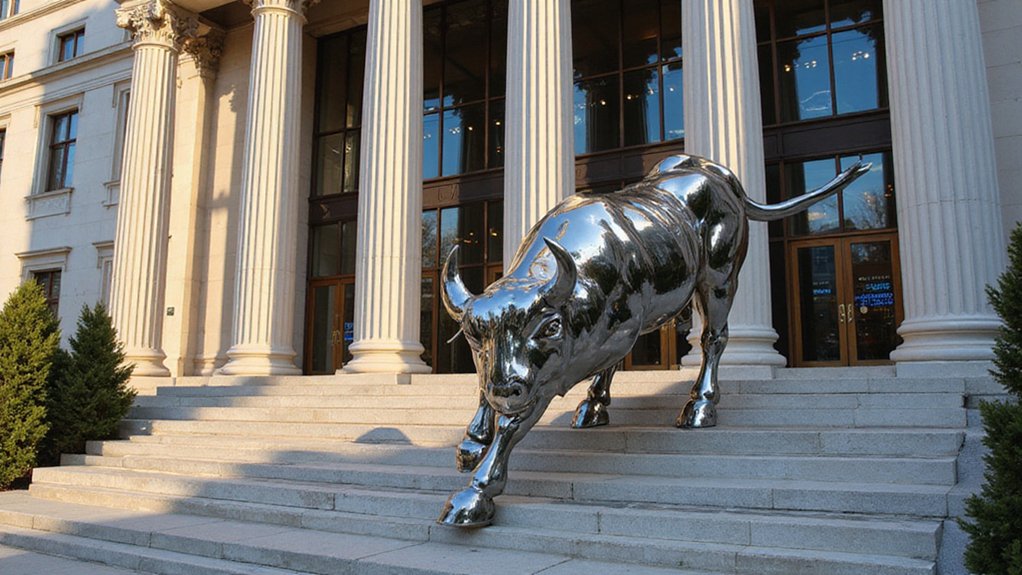A watershed moment arrived on June 25, 2025, when the Federal Housing Finance Agency issued a directive that would have seemed fantastical just a few years prior: Fannie Mae and Freddie Mac must begin developing systems to evaluate cryptocurrency holdings as qualifying assets for mortgage eligibility.
FHFA Director William Pulte announced this seismic shift via social media—because naturally, transformative housing policy now gets delivered through tweets. The directive eliminates the antiquated requirement forcing borrowers to liquidate their digital assets before qualifying for mortgages, acknowledging what crypto enthusiasts have long argued: virtual coins represent legitimate wealth, not mere speculation.
Housing policy via tweet represents our new regulatory reality—where digital assets finally shed their speculative stigma for mainstream financial legitimacy.
The implementation framework reveals careful regulatory choreography. Only cryptocurrency custodied on U.S.-regulated exchanges like Coinbase will qualify, ensuring oversight remains within familiar jurisdictional boundaries. Lenders must develop verification procedures for digital asset holdings while incorporating risk-based adjustments to address the elephant in the room—volatility that makes traditional stocks look positively sedate.
This policy shift aligns with President Trump’s stated ambition to establish America as the global cryptocurrency capital, though one wonders if the average homebuyer truly desires mortgage qualification tied to assets exhibiting Bitcoin’s characteristic price swings. The administration’s pro-crypto stance has also led to a notable reduction in SEC investigations targeting cryptocurrency companies. Fidelity’s 2024 analysis documented cryptocurrency volatility running three to four times higher than large-cap equity indexes, introducing unprecedented complexity into mortgage underwriting. As blockchain infrastructure continues evolving, platforms like Kaanch Network demonstrate how high-performance Layer 1 solutions with record-breaking transaction speeds could potentially address scalability concerns in future financial applications.
The regulatory machinery now grinds toward implementation, with government-sponsored enterprises tasked with creating frameworks that balance innovation against prudential oversight. Meanwhile, the New York Stock Exchange has shown support for a Truth Social crypto ETF proposal that could further mainstream digital asset acceptance. Borrowers can maintain their cryptocurrency positions throughout the loan process—a significant departure from traditional asset verification that demanded immediate liquidity.
Financial regulation experts emphasize the necessity for robust risk management protocols, recognizing that mortgage markets built on relatively stable asset valuations now must accommodate investments that can fluctuate dramatically within hours. The industry remains divided on whether encouraging homebuyers to leverage volatile digital assets represents financial democratization or reckless experimentation.
Market observers herald this development as mainstream adoption‘s defining moment, though the practical implications remain murky. Will cryptocurrency-backed mortgages expand homeownership opportunities or create new systemic risks? The answer likely depends on implementation details that regulators are still crafting, making this directive both revolutionary and remarkably uncertain.









